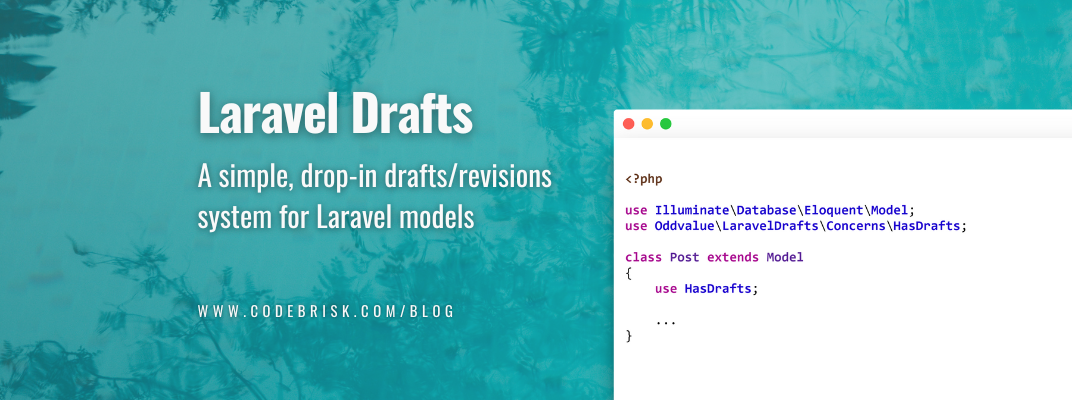Blog Detail
26
Jul
arrow_back A simple drop-in drafts/revisions system for Laravel models
Oddvalue introduced an amazing package Laravel Drafts which is a very simple drop-in draft and revision system for Eloquent models. This package also supports drafts for related models; you can control saving models in a published or draft mode.
Installation
You can install the package via composer:
composer require oddvalue/laravel-drafts
You can publish the config file with:
php artisan vendor:publish --tag="laravel-drafts-config"
Usage
Preparing your models
Add the trait
Add the HasDrafts trait to your model
<?php
use Illuminate\Database\Eloquent\Model;
use Oddvalue\LaravelDrafts\Concerns\HasDrafts;
class Post extends Model
{
use HasDrafts;
...
}
Relations
The package can handle basic relations to other models. When a draft is published HasOne and HasMany relations will be duplicated to the published model and BelongsToMany and MorphToMany relations will be synced to the published model. In order for this to happen, you first need to set the $draftableRelations property on the model.
protected array $draftableRelations = [
'posts',
'tags',
];
Alternatively, you may override the getDraftableRelations method.
public function getDraftableRelations()
{
return ['posts', 'tags'];
}
Database
The following database columns are required for the model to store drafts and revisions:
- is_current
- is_published
- published_at
- uuid
- publisher_type
- publisher_id
The API
The HasDrafts trait will add a default scope that will only return published/live records.
The following query builder methods are available to alter this behavior:
withoutDrafts()/published(bool $withoutDrafts = true)Only select published records (default)withDrafts(bool $withDrafts = false)Include draft recordonlyDrafts()Select only drafts, exclude published
Interacting with records
Published revision
The published revision is the live version of the record and will be the one that is displayed to the public. The default behavior is to only show the published revision.
# Get all published posts
$posts = Post::all();
Current Revision
Every record will have a current revision. That is the most recent revision and what you would want to display in your admin.
To fetch the current revision you can call the current scope.
$posts = Post::current()->get();
You can implement a preview mode for your front end by calling the current scope when fetching records.
For more details, You can visit Github.
Published at : 26-07-2022
Rizwan Aslam
I am a highly results-driven professional with 12+ years of collective experience in the grounds of web application development especially in laravel, native android application development in java, and desktop application development in the dot net framework. Now managing a team of expert developers at Codebrisk.

Launch project
